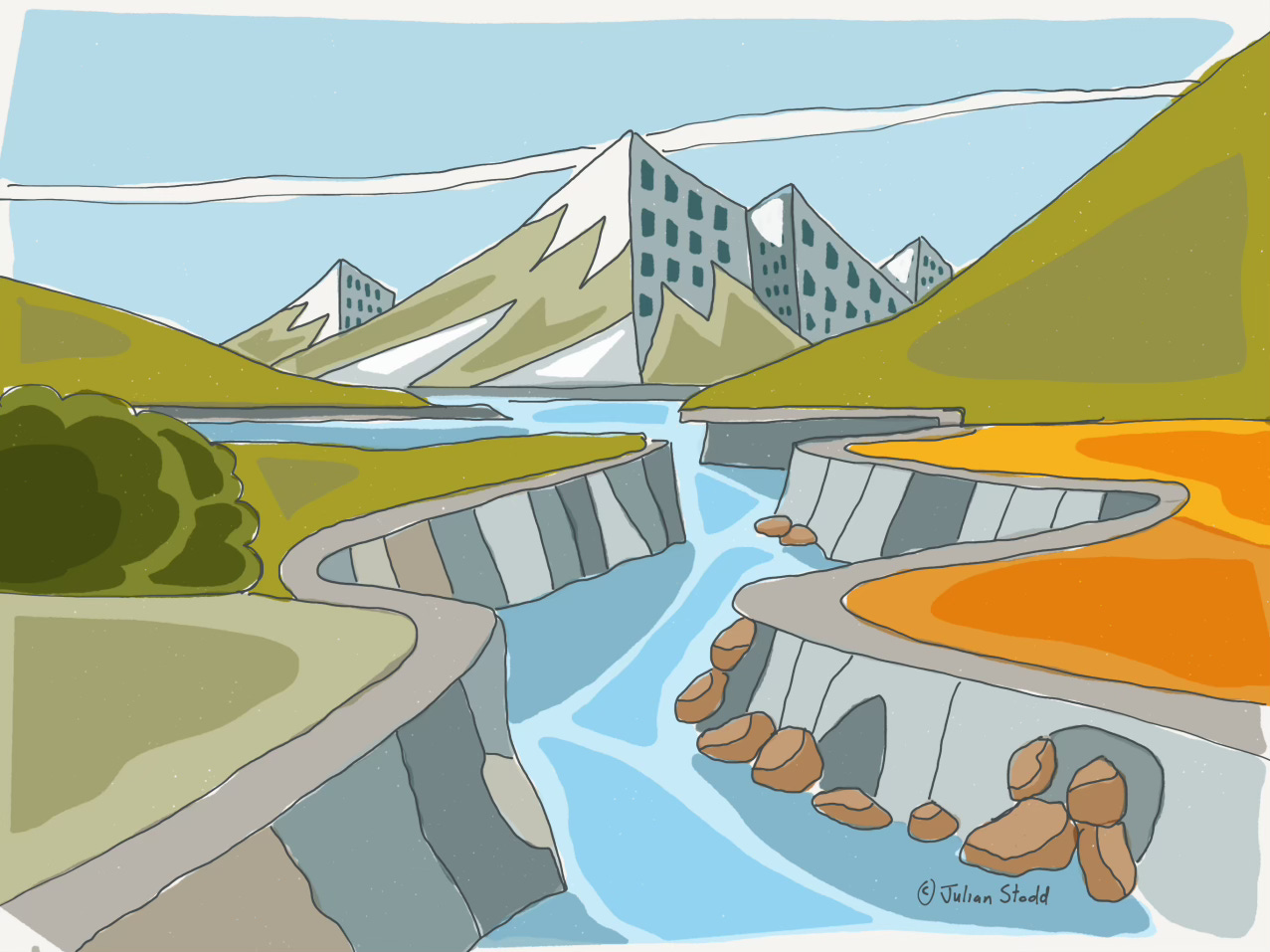I know I have been erratic with this publication, but in part, that is the point of it. I use this space to synthesise my broader work into the clear context of the Social Age. To share the most recent things that I have found.
The work I have been sharing most recently is divergent: building on the ‘Engines of Engagement’ book, to set the Social Context of Generative AI, as well as developing the ideas from the ‘Planetary Philosophy’ book (which is on track for publication over the summer), and finally, the new work on Social Leadership, which is focussed on ‘boundaries’ and ‘motion’. The more I rehearse my language and thinking, the better able I am to draw threads between these disparate areas. And helping me in this has been the doctorate - and on that note, I submitted my thesis last week, so I feel I am almost at the end of that journey!
Over the last year, since Engines was published, I have found myself leaning more heavily into the idea that GenAI is more disruptive that we may imagine, not through simple ‘replacement’ or ‘efficiency’, but rather through a rewiring of some of the fundamental mechanisms of our knowledge creation and ‘sense making’.
The way that generative tools disassociate the ‘craft’ from ‘creation’ may, on one hand, lead us to lament what was lost, whilst on the other feeling liberated, but whichever view we take, we can see that it drives down the cost of the artefact to essentially zero. In this, it’s a replication of what the internet has done for knowledge, but now the things that are being diluted in value are ‘higher order thinking’ and ‘higher order artefacts’. And both these things are far more centrally ‘human’ than knowledge alone.
IN the Strategic AI workshop I have been exploring these two things (and rehearsing this language) - higher order thinking and artefacts are both mainstays of what we expect leaders (and indeed everyone else) to do, or create, and they are almost entirely disrupted by AI. Furthermore, if we take an anthropo-technic view, that the future is ‘human plus machine’, it may make us wonder which of those two will be in charge.
It’s easy to talk about the ‘AI on the Board’, but how will those senior leaders feel when it’s the AI running the Board, and enforcing accountability, or even recruitment.
The Strategic AI work has proved a useful testing ground for new ideas, and the language that surround them, and I have also been playing with a frame in three parts. To consider whether we take a socio-cultural view of the future, a techno-centric view, or an anthropo-techno one. What these mean, in order, is [1] we integrate technology into our existing views on society and culture, [2] that technology destroys or replaces every part of our culture, or [3] that we somehow find balance.
Technology alone (and probably market forces and greed) may lead us to a dystopian view, idealism and heritage may let us imagine we can integrate and retain, but to find a balance will essentially be a human judgement, not a technological one - hence a political one.
We will be forced to consider the society that we wish to inhabit, not simply the one we are given, or which conquers us. When - eventually - we no longer ‘need’ to work, we will have no choice but to consider what we do instead, and what ‘work’ really means to us. And behind all this will be a question of who gets to chose, and who pays the cost.
I am already able to lead a life of leisure, education and enquiry, only because someone, somewhere, is paid very little to make my shoes and grow my food. And this divide will only grow wider, without conscious intervention.
In the doctorate I position that the Social Age is paradigmatic, and hence that ‘paradigm sensing’ is something we need to do well. To figure out when we are truly changing, or extending a legacy and outdated perspective. Sometimes we will need to do both at once: extend the old, and build the new, or many different ‘news’, because the prototyping of ‘what we wish to be’ will be important, and this is relevant today.
We have to consider what our Organisations will be, when they are no longer post-industrial artefacts, and our primary mechanisms of production and effect.




